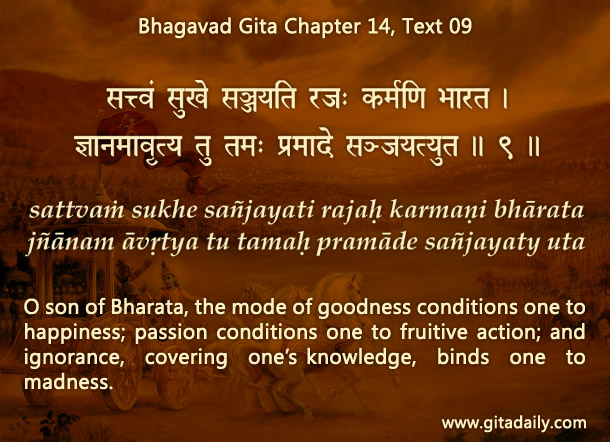Suppose an alcoholic suffering from a hangover resolves, “I am suffering because I drank low-quality wine. Next time I will drink only high-quality wine.”
Such a resolution reflects a tragic, if not insane, misdiagnosis – the problem is not the quality of the wine, but the activity of drinking itself. Some wines may cause lesser hangovers than others, but all hangovers are unnecessary self-imposed sufferings.
For the spiritual soul, the hope that anything material can provide happiness is an intoxicant. That hope provides a temporary high when the desired object is obtained, but then delivers a long-lasting hangover when miserable material existence is perpetuated by the resulting attachment.
The Bhagavad-gita explains that our particular illusion about how we will find happiness in material things – our favorite wine brand – is shaped by the three gunas. In sattva-guna, we feel that happiness lies in knowing the right things and feeling more learned than others; in rajo-guna, in doing the right work and gaining control over others; and in tamo-guna, in finding the right illusion to escape into.
At first glance, rajo-guna seems better than tamo-guna and sattva-guna seems better still. And that’s true – but only till the hangover hits. Though our life is better in the higher modes, still all three gunas bind us to material existence, as the Bhagavad-gita (14.09) warns.
To break free, we need to reject the lure of a better quality wine – of a better material situation – and instead focus on cultivating a better spiritual disposition. To improve our disposition, we can learn to love Krishna by practicing bhakti-yoga and harmonizing the tendencies coming from the higher modes, that is, seeking to know Krishna and to work for his service. By thus seeking and finding happiness in spiritual love for him, we can end the hangover of material existence.

Explanation of article:

Leave A Comment